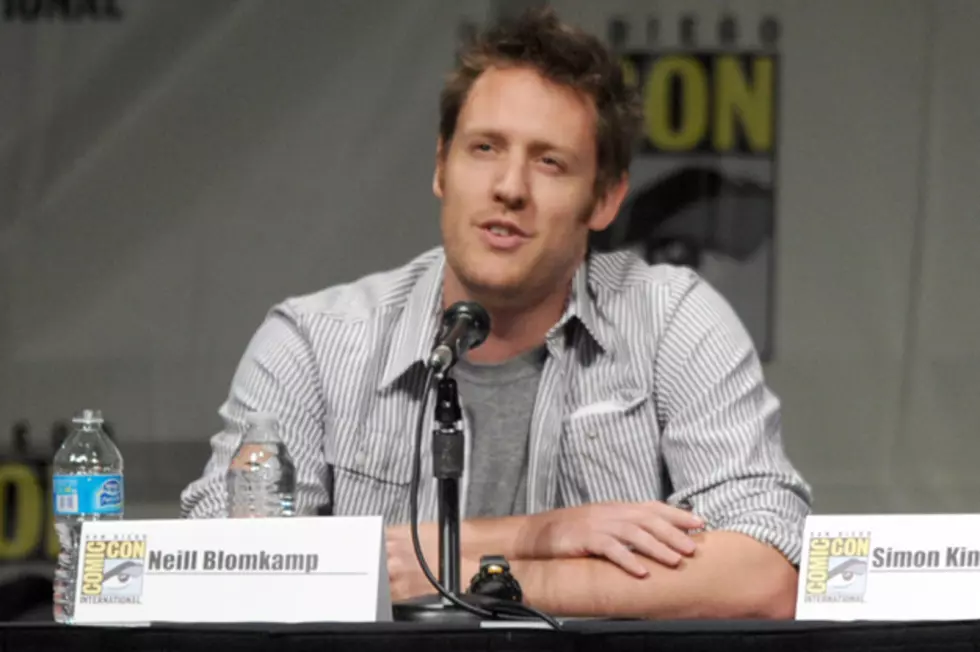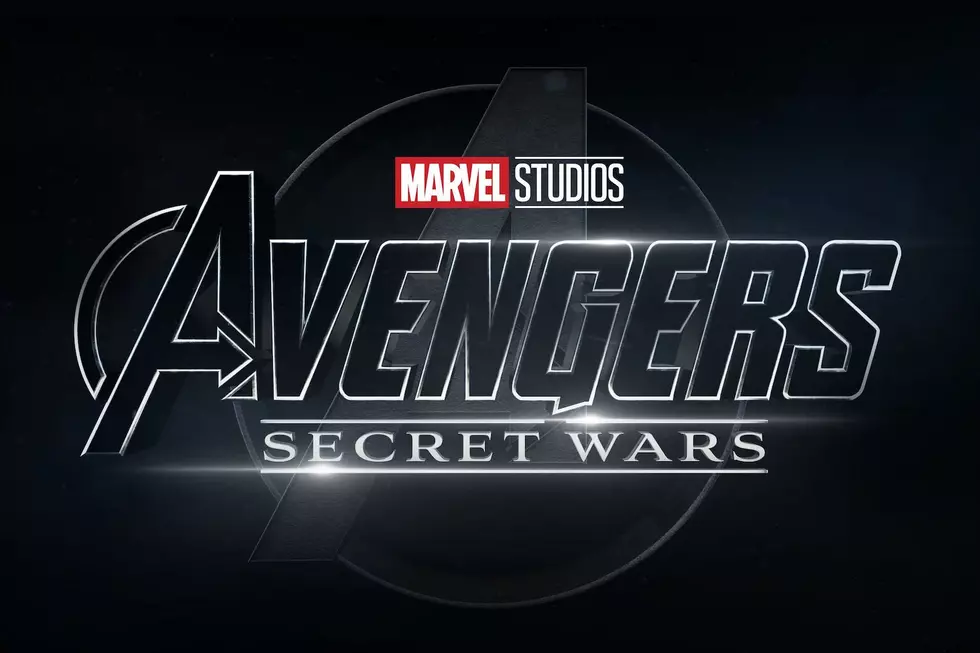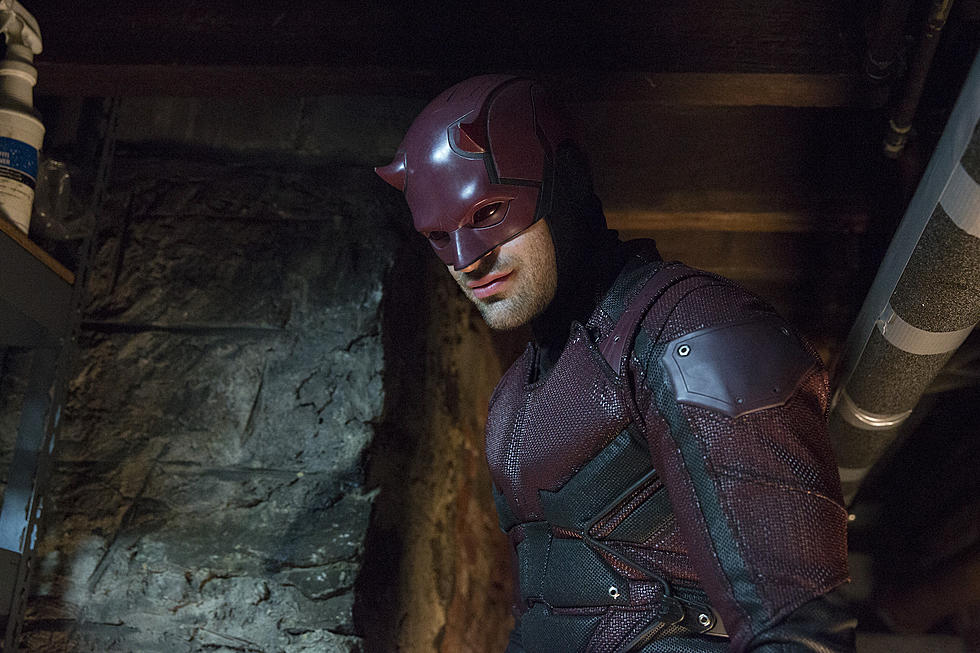
Comic-Con 2012 Interview: Director Neill Blomkamp Talks ‘Elysium’
Director Neill Blomkamp's feature film debut 'District 9' took Comic-Con by storm in 2009. A science-fiction offering that managed to deliver stunning effects, cultural relevance, an original story and a tragically beautiful character arc in one fell swoop, 'D 9' thrust Blomkamp onto the world stage in a significant way and was eventually nominated for an Academy Award.
His follow-up film, 'Elysium,' is easily one of the most highly anticipated films of next year. Matt Damon, Jodi Foster and 'District 9''s Sharlto Copley star in the film which is "set in the year 2159, where the very wealthy live on a man-made space station while the rest of population reside on a ruined Earth. The story follows a man (Damon) who takes on a mission that could bring equality to the polarized worlds."
We had the opportunity to sit down with Blomkamp at this year's Con to discuss the trend he sees in big Hollywood event films, what an actor's celebrity brings to a story and taking on politically charged cinema.
So the basic premise of the movie is essentially where we’re headed if we’re not careful.
That’s pretty accurate.
Is that your inspiration? I feel like you were maybe looking at those '50s futuristic Elysium pieces of artwork and imagining what that world would be with where we’re at as a global society, economically and politically right now.
Yeah sort of. Outside of film, I’m just interested in where the earth is going just as a topic of discussion. So, I think it’s fairly accurate to say that this film is kind of along the lines of where I think accurately it might be. In my personal take on it, the science-fiction kind of imagery of the space station is somewhat separate. You know? It doesn’t have to be a space station; it could be anything that defines rich and poor. So that was a separate compartment. I just love visual imagery and I just love the idea of that tourist floating in space.
Did you have any hesitation at all about taking on a politically charged film and story after 'District 9'?
No. I mean, the thought process isn’t necessarily like that. The thought process isn’t like, "Let me try to come up with a socio-political film and make it." It doesn’t work that way. I may not even realize that it’s entirely political until I’m well into making it, and it’s like, "Oh actually, this does have a lot of topics that people will think are important topics and therefore I think the film is important;" as opposed to "I’m just interested in the stuff" and it serves as a more interesting backdrop than for a film that doesn’t have it.
Has your mentor Peter Jackson looked at any of it? Did you talk to him at all during the scripting process and while developing it?
I did early on when I had a draft. Since then, he’s just been so busy on 'The Hobbit,' I haven’t really stayed in touch as much.
Did he have any particular input on the draft?
Well, you know what, at that point it was very different. Screenplays take, like, years to write and so the one that he saw was actually very different to what it ended up being. He was just getting ready for 'The Hobbit' and stuff, so the newer developments that took it in a very different direction were... I don’t think I sent him those versions.
Well, science-fiction has, obviously, a tradition of tapping into what’s happening culturally. That’s what it does when it’s at its best, in my opinion.
It's true.
But I remember when the trailer came out for 'The Dark Knight Rises' and the catchphrase was "Occupy Gotham."
Yeah.
Do you feel like there is a pendulum swaying to a place where, in cinema, big event films are taking on broader themes?
I don’t know if that’s true, actually. I look around at big event films and feel, generally speaking, that they’re hyper-unintelligent. Right so, it actually seems like it’s getting worse to me, not better.
Really?
I mean Christopher Nolan is an entirely separate anomaly, and 'The Dark Knight' and 'The Dark Knight Rises' fit in to almost a totally separate discussion to me. On average, I would say no. I would say that they’re [big event film] about less and less, other than trying to make money.
But yet there seems to be room, though. Certainly 'District 9' was successful.
Well, 'District 9' was different 'cause it was so low-budget and 'cause it was under the radar. I think films like that... I guess what I’m saying is, I think that you may see more and more of a discrepancy between large event films becoming dumber and dumber and larger and larger -- and almost no middle ground -- and then low-budget films that are interesting, that tackle a bunch of topics.
That’s really interesting because it’s kind of like the parallel to what 'Elysium's' looking at in terms of the one and the 90 percent, the opposite trajectory of the one and the 99 percent. Like, one percent is intelligent. Unfortunately.
Yeah.
That’s fair. You talked about your visuals and sort of the lower budget on 'District 9.' You did so much in terms of the effects on that. What can we expect to see in 'Elysium'?
Effects-wise?
Effects-wise, sure.
The effects are pretty cool. There’s stuff in there that I’m really proud of.
Anything in particular?
The Torris. I mean, the space station. That to me feels like imagery I haven’t seen before, which is a good sign. You know, it feels very, very, very cool.
One of my favorite parts of 'District 9' was the character portrait of Wikus. I just loved that journey. I’m looking at the images and I don’t know, but I’m wondering if Matt Damon is going to take a similar journey. Does he?
He’s definitely the central focus. It’s his story. With Wikus he was almost like a passive racist who flipped onto the other side, so in a way that’s kind of like a good Nazi story. That’s a very different kind of story to what this is. Having said that though, he has a massive arc. I mean it’s similar, I suppose, to Wikus in that sense, but he’s never coming from the other side.
What kind of arc? What’s his A to Z?
I can’t give so much away.
Well you can’t tell me the movie, but is there, in general terms, a place where he starts and a place where he finishes?
Yeah, and they’re pretty different. They’re pretty different.
[Laughs] Is that all you can say?
[Laughs] Yeah I can’t give it away. I mean, he’s sort of wrestling with his past. He’s like an ex-convict, really, that needs to become a better guy.
I was wondering, as a director, is it interesting or beneficial to you to have an actor that people aren’t acquainted with?
That are not?
That are not, as in 'District 9' because in a way the audience is a blank slate; and the actors don't bring their celebrity as Jodie Foster and Matt Damon do in this film.
You know, it depends on the kind of film you’re making. When the idea of Matt came up, it was like a really great way to go because the character is a little bit selfish and does things that are a bit sketchy for what you expect an American movie star to do. You know, the all-American kind of poster-boy.
It helps your cause if the audience has that background and that history, so that when he starts doing things that are seriously uncouth, they don’t lose faith. Whereas if you start off with someone that the audience doesn’t know, they may actually just give up on him. It’s like, "That’s too much, I can’t go along with you." So in this particular film, someone like Matt is really exactly who you do want. It just depends on the movie.
How about for Jodie Foster? She brings the gravitas. Do you think this lends itself to us believing she’s this authoritative figure?
Yeah, I think so. I mean, there’s some of that. Matt’s character was the one that really tied in with the history of him and in the audience’s mind being something that you could play with, right? Where Jodie is just a superb actress that kind of just is exceptional at fitting this role. The byproduct of her having a lot of gravitas that kind of makes the role more powerful is only a bonus, but it’s that she’s very well suited to it, as well.
Would you ever think about revisiting a 'Halo,' that kind of thing, or do you just now want to make your own films?
My instinct is to try and make my own stuff. I very much feel sort of like an autonomous artist that doesn’t. I really don’t like being messed with, you know, and that "messed with" can come from a lot of different places. Like, even if you’ve given the money and the studio left you alone, you could be messed with by the fans. The fans may not like what you do with a pre-established piece of IP that they love.
I mean, I love 'Halo' as a concept and I love my take on it, but maybe the audience doesn’t, right? And maybe they do. I don’t know. But the point is, why get involved with that? Why not just do something that is fresh, that, from their point of view, they can choose to like or not like based only on that one film.
Also the other thing is, from a political standpoint, you don’t want people saying, "Well, I expected the character to do this" because there’s 100 comics about [about] how he’s acted in the past and has a different point of view to you. You know? I just wanna be in control and do my own stuff. That makes me lean towards doing my own films.
'Elysium' opens in theaters on August 9, 2013.
More From ScreenCrush









